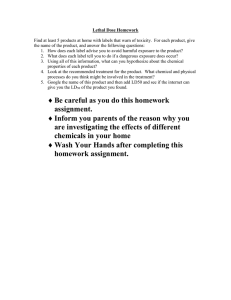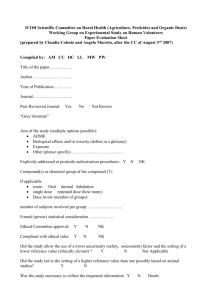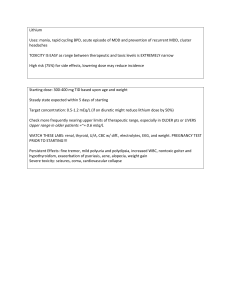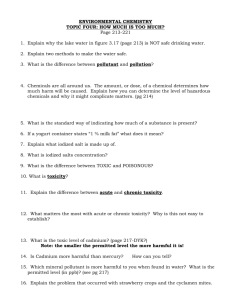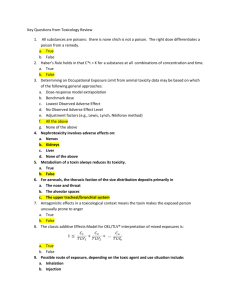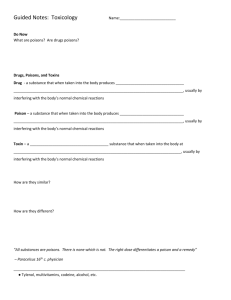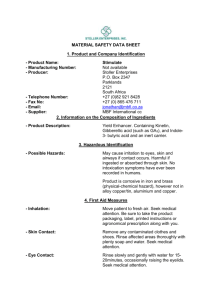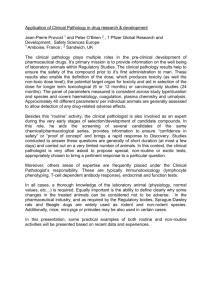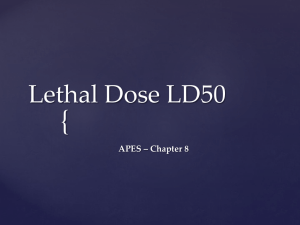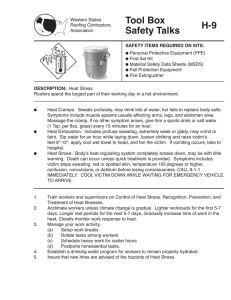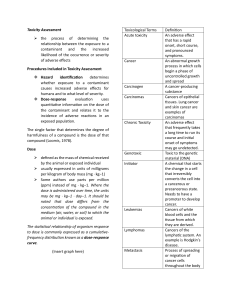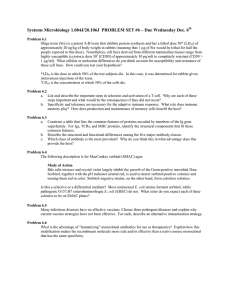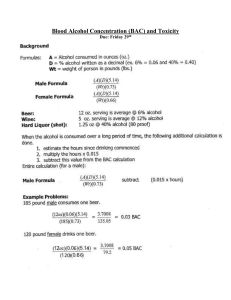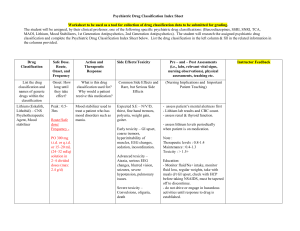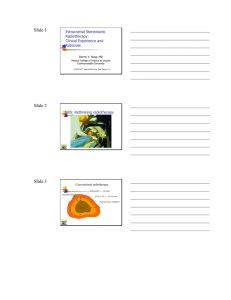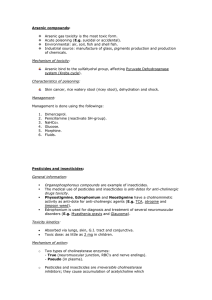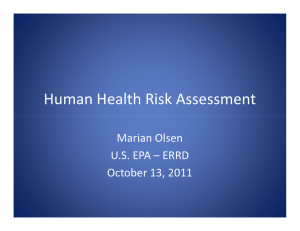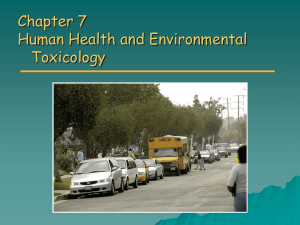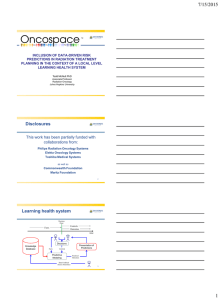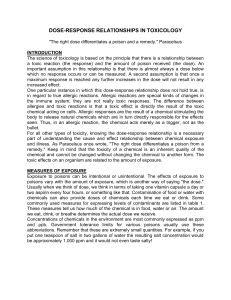Toxicology Forensics Foster
advertisement
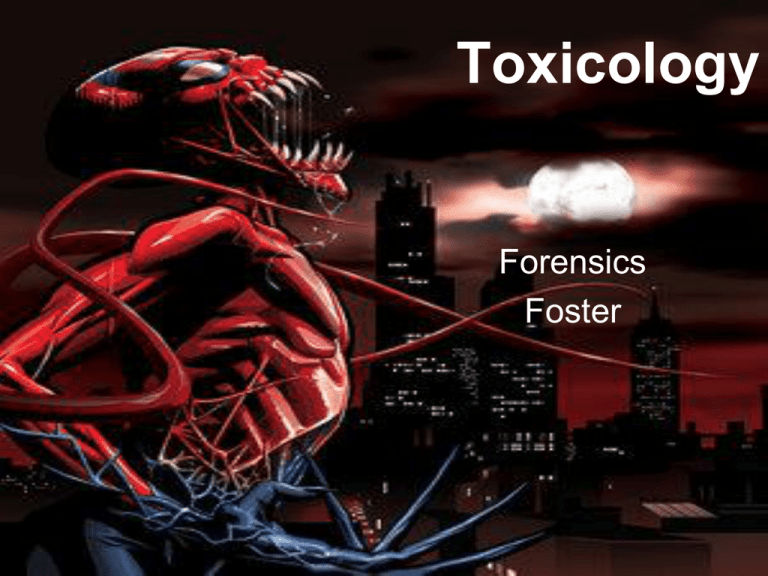
Toxicology Forensics Foster Toxin • Substance that can cause injury to the health of a living thing on contact or absorption – Usually reserved for naturally produced substances that kill in small quantities Factors affecting Toxicity 1. Dosage- amount and frequency 2. The chemical or physical form of the substance 3. The mode of entry into the body 4. Body weight and physiological conditions of the victim, including age and sex 5. The time period of exposure 6. The presence of other chemicals in the body or in the dose Example • Arsenic is a metal – Rather insoluble in stomach acid • As2O3 and extremely toxic As2O5 • Arsine AsH3 is a gas that can kill • Small amounts of arsenic are good for you and you are exposed to all the time Factors (cont.) • Lethal Dose – LD50 refers to the dose of a substance that kills 50% of the test population, usually within 4 hours • Expressed in mg of substance per kg of body weight • Chemical or physical form of the substance – Solid, liquid … • How it enters the body – Blood, absorption… • Body weight and physiological conditions of the victim, including age and sex – Larger doses are required for a big person Factors (cont.) • Time period of exposure –Chronic exposure- exposure over a long period of time –Acute toxicity- effects almost immediately (hrs. or days) Violin markings Factors (cont.) • Presence of other chemicals in the body – Synergism- combined effect of substances exceeds sum of individual effect – Antagonism- combined effect decreases individual effects – Chelating agent- stabilize or prevent the precipitation of damaging compounds Red Hourglass Measuring Toxicity Humans based on animal LD50 (Rat, oral) <1 mg/kg Correlation to Toxicity Ingestion by 150-lb Adult Human a taste to a drop extreme 1–50 mg/kg to a teaspoon high 50–500 mg/kg to an ounce moderate 500–5,000 mg/kg to a pint slight 5–15 g/kg to a quart practically nontoxic Over 15 g/kg more than 1 quart relatively harmless To Prove a Case Prove a crime was committed Motive Intent Access to poison Access to victim Death was homicidal Death was caused by poison Alcohol • Most abused drug in US • ~40 % of accidents related to alcohol • Tests – Field • One leg stand • 9 step walk & turn • Nystagmus– – jerky eye – Breath Analysis – Blood Analysis
